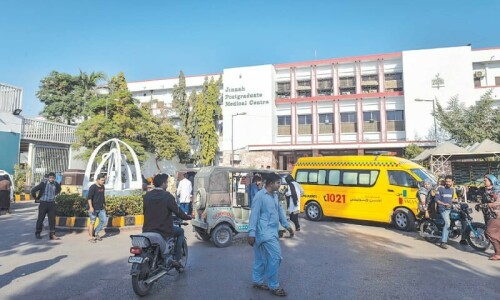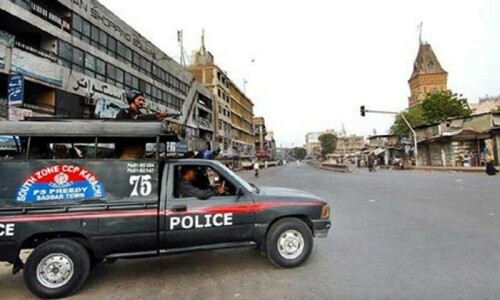RECENTLY, students in Pakistan took to the streets to press for their rights to elect their representative bodies at educational institutions. In 2019, the idea has both its takers and detractors. Not in the past, though. In the 1960s and ‘70s the young ones had a voice as vociferous as any influential segment of society in the country.
On Dec 31, 1969, polls were held for the students to elect their union leaders. Rigorous campaigns were organised before the important day to promote the candidates. The tempo of the activities was perhaps nowhere more frenzied than on the Karachi University campus. According to a report: “As soon as you boarded a university bus, you began to feel that you were ‘in’ the election business. The bus conductor would hand out chits bearing the candidates’ names along with the bus tickets. And when you got off the vehicle, your eyes met a sea of colourful posters put in every nook and corner of the campus. Workers of each candidate went around in groups explaining their manifestoes to the voters.” There were five individuals contesting for the post of president of the University Union.
So on Dec 31, Karachi witnessed one of the most exuberant and disciplined elections for the student unions ever held in the city when over 100,000 boys and girls belonging to the university and 55 colleges went to the polls to choose office-bearers of their unions for the current academic year. The election was fought on an ideological basis. A keen contest was held between two major groups whose campaigns were spearheaded by the Islami Jamiat-i-Talba (IJT) and the two factions of the National Students Federation (NSF – Kazmi and Rashid). A few institutions, including girl colleges, had held their voting process earlier.
Not that the entire activity took place without any controversy. On Dec 29, four students belonging to the NSF (Rashid group) went on hunger strike protesting against the alleged “undue interference” of the university authorities in holding polls for the Dow Medical College (DMC) Students Union. Saeedullah Khan and Qaiser had started the protest on Dec 29, joined by two more boys — Athar Ali Zaidi and Shahin Iqbal — on Dec 30. A joint meeting of the NSF, PSF and the Sindh Medicos Association was held at the DMC on Dec 30 in which speakers warned that if the authorities failed to take effective steps to remove the genuine grievances of the students, they would be forced to take “some serious steps”.
Which way did the results swing on Jan 1, by the way? In most cases, the two factions of the NSF opposed each other damaging their cause irreparably. Consequently, the IJT-backed candidates, one survey revealed, captured 65 major seats in 32 local college union elections.
While the young ones were busy with choosing their candidates on the level of educational institution, on a larger scale the entire country was bracing itself for the general election; and Karachi was no exception. On Dec 31, Dawn reported that as per the voters’ forms collected by the enumerators about 1.45 million Karachiites were likely to cast their votes in the forthcoming general election. A source quoted a statistician as having worked out that the total population of Karachi district was 3,060,400 based on the 1961 census plus the growth at the rate of two and a half per cent per annum. (In 1961, Karachi’s population was 1,912,598.)
As far as the issue of the city’s status that had hogged the media attention for the previous many weeks was concerned, it took an interesting turn when on Jan 3 Chaudhri Khaliquzzaman, a veteran Muslim League leader, emphasised the need for transferring the capital from Islamabad to Karachi. In a statement he said that a columnist had made a case for the transfer of the capital. He argued: “It is true that as long as Karachi was the capital the political leaders of East Pakistan considered it as their second home and some of them purchased buildings in the city for their stay. This question, however, is bound to come up after the elections, and if East Pakistan’s leaders still desire to see that the capital transferred to Karachi, they will have not only the support of East Pakistani members of the National Assembly but many of the representatives of West Pakistan.”
Published in Dawn, December 30th, 2019













































Dear visitor, the comments section is undergoing an overhaul and will return soon.